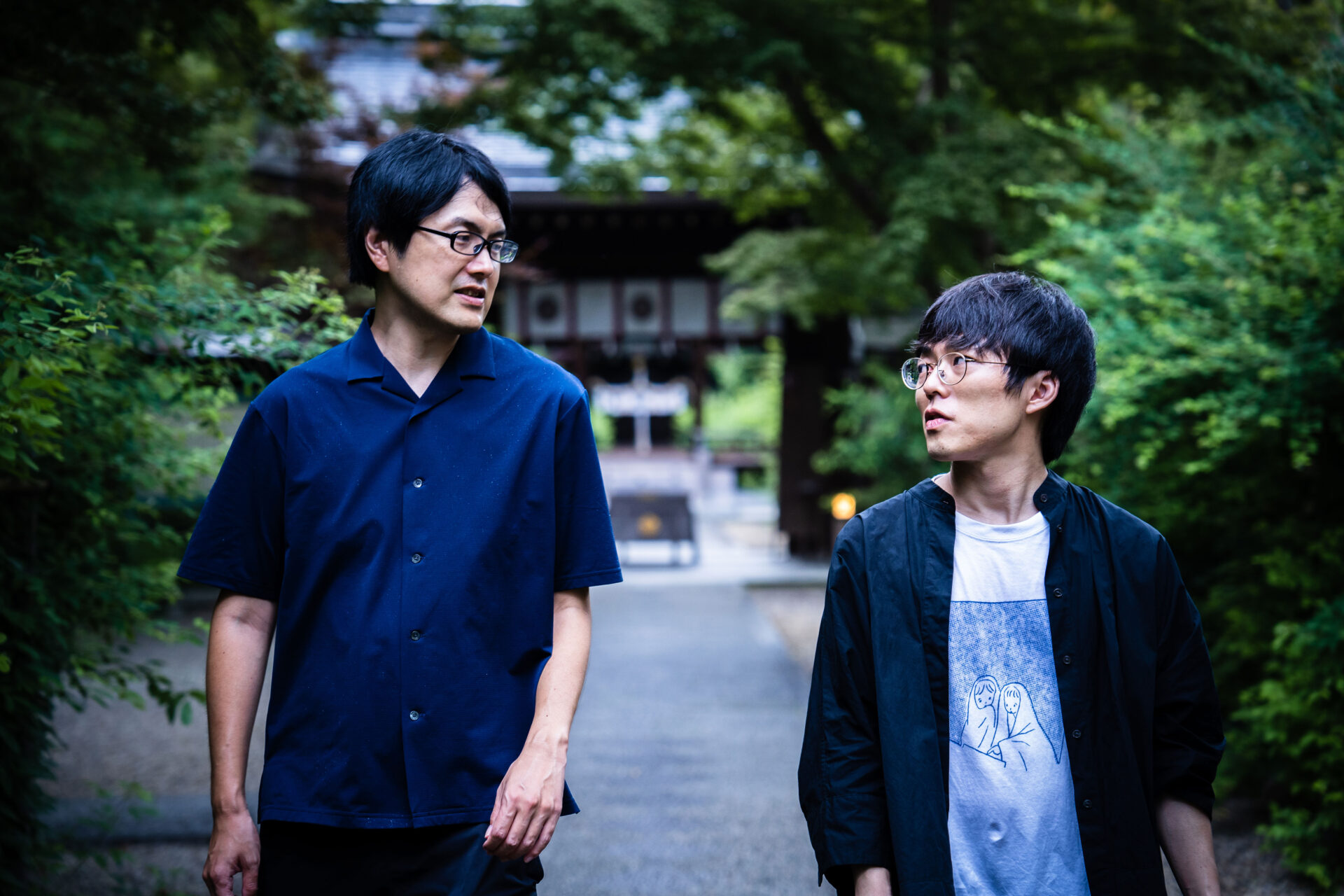Series: Choosing an alcohol free life
Drinks have been a beloved shikohin since ancient times, especially alcoholic ones. In Japan it is said that large scale sake brewing started about 2,000 years ago, along with the beginning of rice cultivation. Even today, alcohol continues to be a popular shikohin.
On the other hand, some changes are arising in how alcohol is perceived. There is a growing number of people who are choosing a sober curious lifestyle and the notion that alcohol is the shikohin of choice for adults is gradually crumbling. So what significance does alcohol have in our modern lives and what changes are behind the shift towards sober curious lifestyles?
In this series, “Choosing an alcohol free life”, critic Tsunehiro Uno will speak with intellectuals of various backgrounds to discuss the current status of alcohol as a shikohin and the lifestyle behind adults who are choosing a sober life.
For the first article of the series, we visited philosopher Yoshihiro Tanigawa. In his book “Philosophy in the Age of Smartphones. A journey to find lost solitude” (published by Discover 21, 2022), he writes that people are compensating for their anxiety, boredom and lonelinees with easy and familiar stimuli from the “constantly connected world” of smartphones.
What role does alcohol and other shikohin play In this “constantly connected world”? We explored the role of shikohin in the age of smartphones and how to incorporate them in our lives.
Choosing to distance oneself from drinking parties that were used to confirm belonging
Uno: Do you drink alcohol?
Tanigawa: I do enjoy drinking alcohol. Ever since the coronavirus pandemic I feel that I drink alone at home more often, while reading or watching movies. How about you?
Uno: I actually don’t drink at all. I used to drink on social occasions, but I had a very bad experience at a drinking party about ten years ago and I have stopped drinking ever since.
Although we talk a lot about pretty ideals In the field of philosophy and thought, there is still a very homosocial “drinking club” culture where insidious acts such as slandering people to gain favor of the boss is still commonplace. There are even people who share such interactions online to make money off online bullying.
Tanigawa: Do you dislike the culture of connecting through alcohol?
Uno: The generation that is a little older than me, or the so-called junior baby boomers, still have a deep rooted social drinking culture. This culture is very connected to JTC (Japanese Traditional Company) and drinking parties functioned as a way of confirming belonging or membership in a group.
Tanigawa: I was born in 1990 so perhaps I don’t really share that concept of drinking being the equivalent of confirmation of belonging.
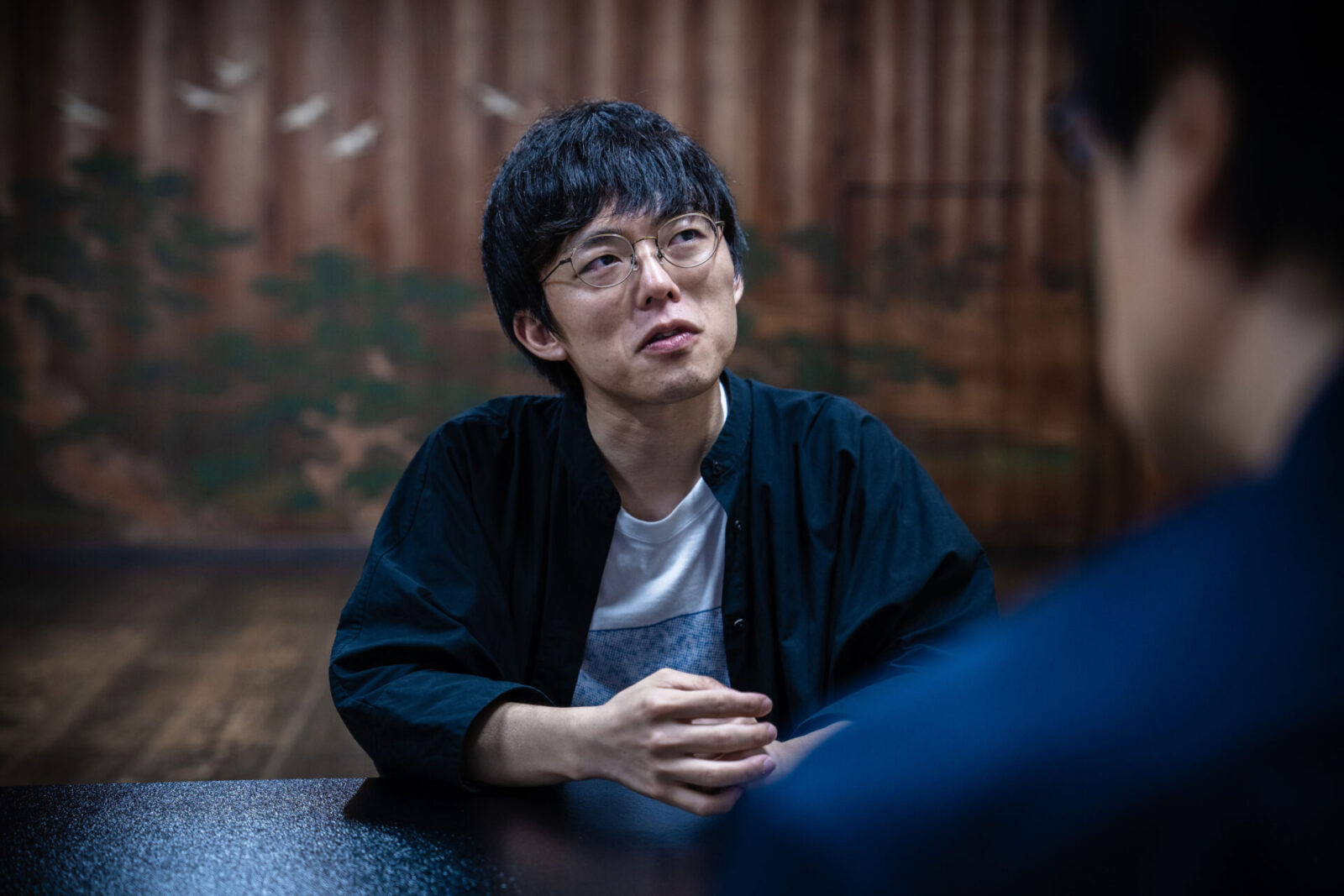
Uno: The younger generation in their 20s and 30s today seem to be distancing themselves from the older drinking cultures. If they are served an alcoholic drink with their dinner, they enjoy it as a part of the dining experience, but separate it from the idea of it being a tool for communication.
Furthermore, it is said that this trend of the younger generation choosing not to drink alcohol is happening all around the world. Although there are varying degrees, I think Japan is no exception to this trend.
Tanigawa: Speaking of enjoying food and beverages, it seems to me that many young people enjoy them visually. For example, the Frappuccino topped with whipped cream. Of course I am sure they also enjoy the flavor, but I think many people enjoy the visual aspect a lot. In other words, they are drinking and eating “information.”
Of course, the popularization of smartphones and social media was very influential in creating this trend and enjoying food and drinks has become synonymous with following online trends. On the other hand, people who focus on flavor over visuals tend to overanalyze and talk too much about the food, like in the comic book “Oishinbo”. I believe there should be a fine medium between the two.
Uno: I think the best way to truly enjoy dining is to eat alone. I am constantly on a diet, so I usually eat only one meal a day to control my calorie intake. I usually only eat lunch so I dedicate my life to making the most of that meal. (laughs)
Instead of eating with someone else, I find that eating alone allows you to naturally select what your mind and body really wants to eat at that moment. There is no room for self-consciousness or pretense and you can concentrate solely on the pleasure of eating.
If you take the comic book “Oishinbo” for example, I think the main character talks a lot because of the presence of the other characters who are eating with him. I believe that eating alone is the gateway to a genuine dining experience.
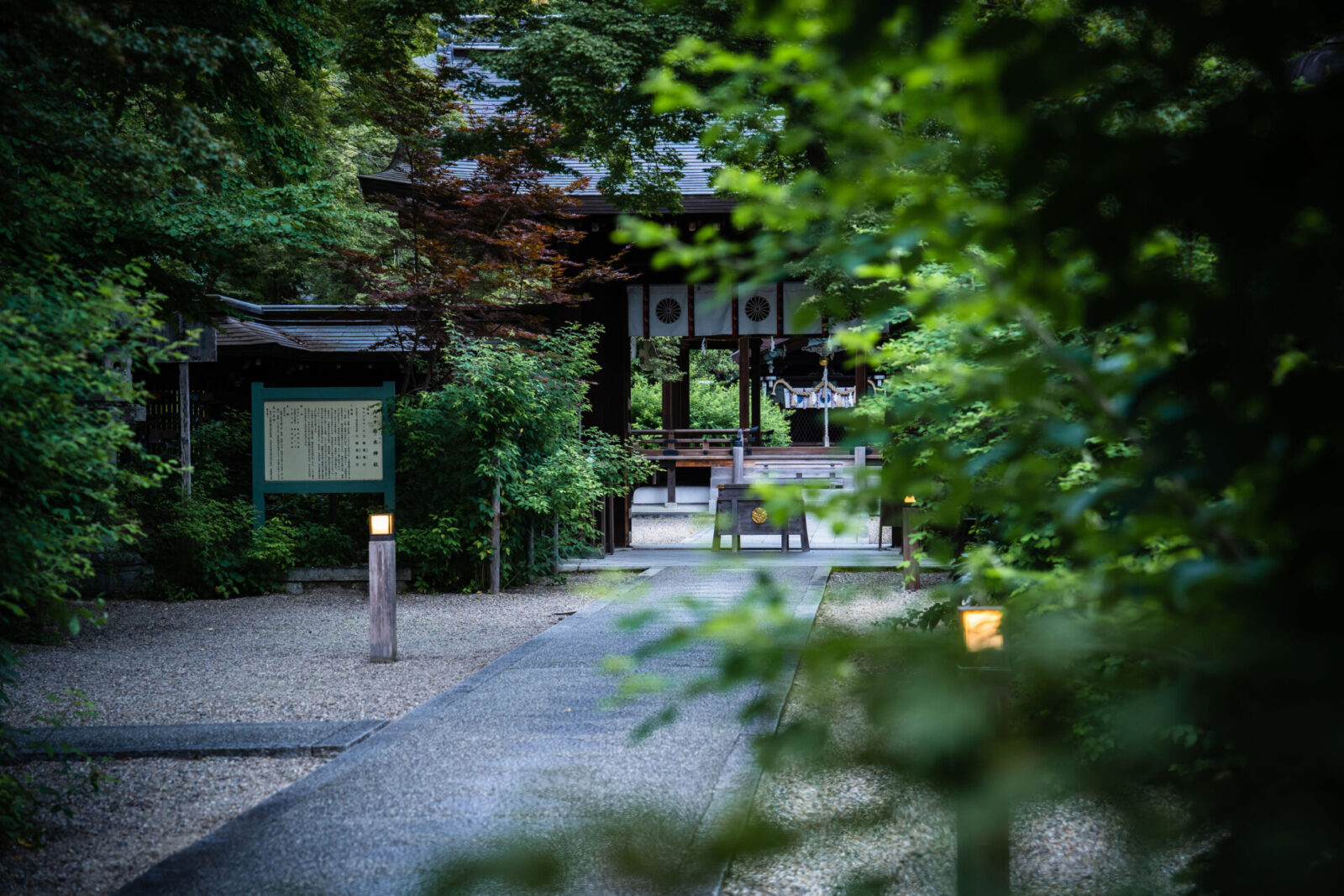
Absence and discomfort are what nurtures desires
Tanigawa: Interesting. Speaking of eating alone, although it has become common practice today, until recently the fact that more college students are choosing to eat alone in school cafeterias became a hot topic for discussion. The same is true for the trend of people choosing to eat alone in bathrooms. Of course, I am sure it is not only college students who choose to eat alone, but in any case I do not think that all “solo eaters” are enjoying the “genuine dining experience” that you describe. In fact, it seems to me that they are ashamed of being alone.
Uno: That is a question of desire and in my case it is based on personal experience. I lived in a dorm when I was in high school so I could not eat what I wanted at all. I had no choice but to eat the food provided in the cafeteria three times a day and the food was terrible. If there were four side dishes in the meal, usually only one was suitable for human consumption. Perhaps it was because they were trying to provide us with the necessary nutrition within a limited budget, but it resulted in a complete disregard for flavor.
I remember crying when Mos Burger or Haagen-Dazs was served at the Christmas dinner because it was so delicious. I think it is because of these memories of having an absence of good food in my adolescence that I have such a strong desire to maximize the pleasure of eating today.
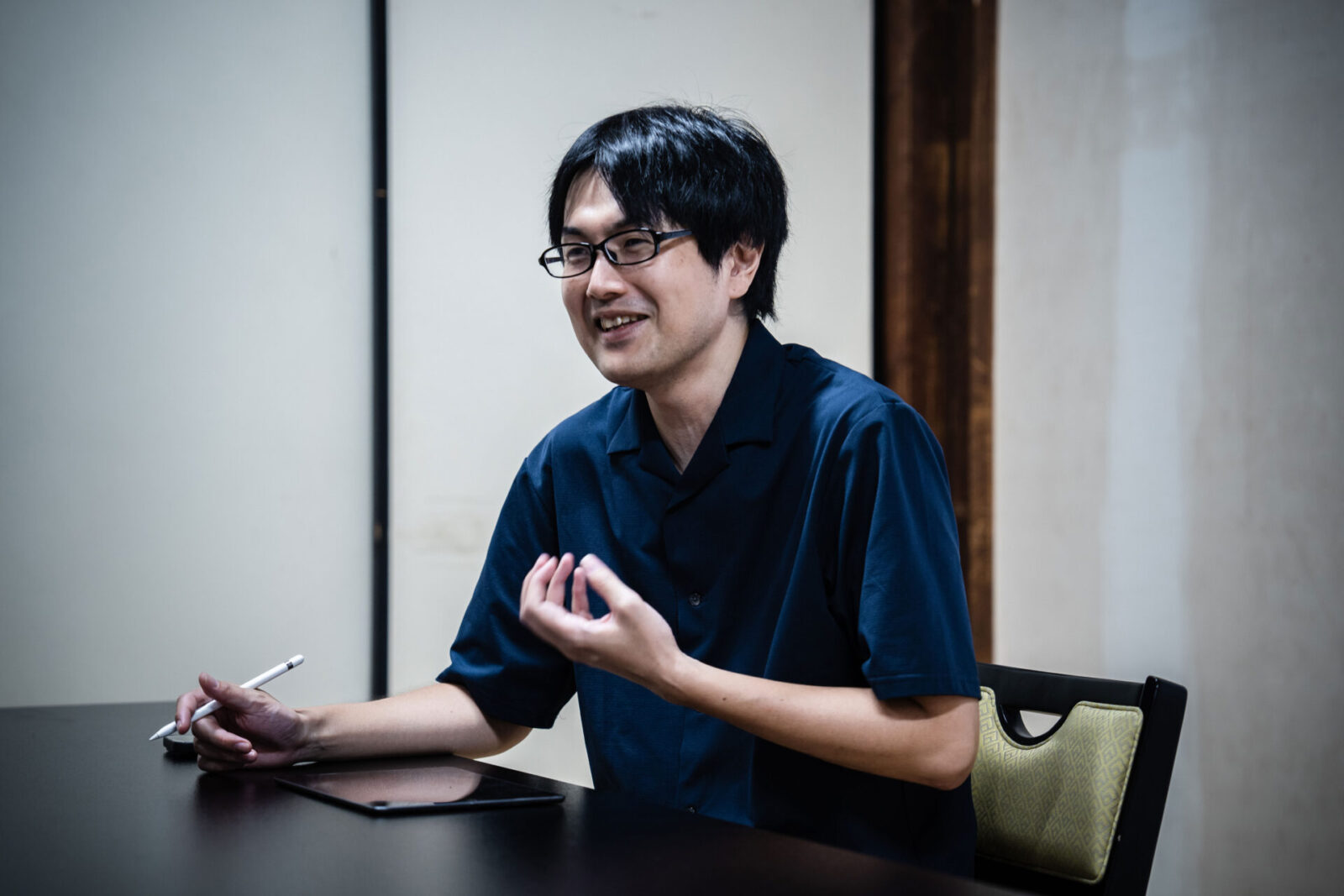
Tanigawa: Architect Yusuke Koshima wrote in his book “Architecture for Comfort” (published by NHK, 2023) that it is because we come in contact with unpleasant things that we gain sensitivity towards what makes us happy and learn where our desires are directed. Perhaps it is necessary to be exposed to a wide variety of things, whether we like it or not, In order to clarify what our desires are and nurture them. This includes experiencing absence.
Uno: Sometimes the act of eating exerts a force that keeps other things at bay. There used to be a Ramen Jiro shop near my office and there was always a line of hungry young male students. They always looked like their minds were consumed by the ramen that they would soon be eating.
Any shame, self-consciousness or desire to look cool seemed to be temporarily lost in the minds of the hungry students lined up at Ramen Jiro and the only thing they craved was to satiate their hunger with the salty and fatty ramen.
Furthermore, in order to prevent the noodles from getting too soggy, everyone ate the ramen in less than 10 minutes, without a word of conversation. No matter how deep a conversation they may have been having while waiting in line, the moment the ramen is placed in front of them they only focus on that. When you are eating your ramen, any thoughts of social media or self-branding are put aside. I find a kind of purity in this.
Tanigawa: Was there anyone who liked to talk about the ramen after they finished eating it?
Uno: Of course, I am sure that ramen fanatics like to talk about it. I am not too fond of such people but even these people are focused only on eating when they are in front of the ramen. At the very least, I don’t think they are thinking about what to say during the time they are consuming the ramen.
Has social media robbed us from temptation towards things that are right in front of us?
Tanigawa: So eating alone and enjoying that moment brings back purity in the act of eating. In my book “Philosophy in the Age of Smartphones. A journey to find lost solitude” I emphasize the importance of solitude, as mentioned in the title. One of the concerns I bring up is how the ideals of solitude easily veers toward narcissism. If you read the writings of many writers from the older generation, you often find them romanticizing solitude and going on and on about how they choose to experience it. On the other hand, one cannot say that narcissism itself is an absolute evil. In order to develop one’s own desires, narcissism can help to encourage our imagination.
Uno: I don’t think it is possible to engage in social activities without a certain level of self love, so I don’t think we can dismiss narcissism itself. It is easy to point out narcissism when putting someone down, but doing so is sure to backfire.
I think the bigger problem is when imagination that arises from narcissism gets suppressed, and that diminishes the creative power of society. This is why it is important to have powerful things that can dismantle and reconstruct narcissism.
There are many fanfiction and spin-offs that are created based on popular manga. This often arises from a desire to create a storyline that one really wants to see, but will never be depicted in the original work. For example, there are “boys love” comics that take heterosexual characters of the original manga and create a homosexual storyline among them in the fanfiction.
In such cases, the motivation of the fanfiction creator is to create a storyline that they would like to read, but the official version will never supply. This desire comes from an absence and I think it is derived from a different place than narcissism.
There is a saying, “Subculture is fashion, otaku is passion.” In other words, I think this means that for better or for worse, the power of otaku culture is supported by a desire that temporarily dismantles even the most basic self-love.
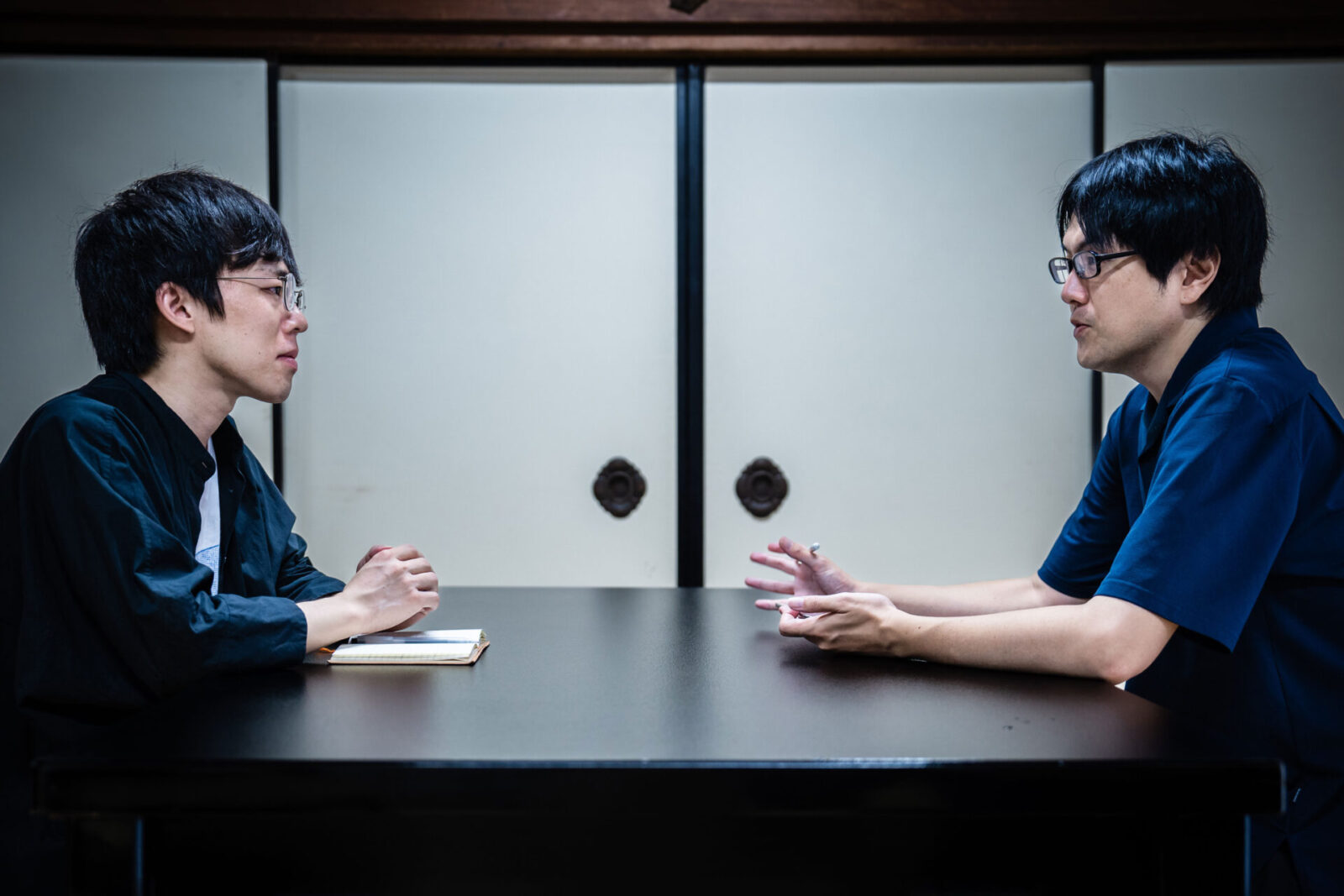
Tanigawa: Perhaps the basis of such desires comes from temptation towards things that are right in front of us. Not a topic on social media or an opportunity to engage in small talk, but more like the act of simply enjoying a meal as a meal.
I think that as we become more accustomed to simply receiving “information”, we lose opportunities to develop the ability of being tempted by things that are in front of us at the moment. Temptation is a joint relationship so it does not occur only because something is attractive. Unless we have a certain sensitivity towards it, we will not even notice the attraction.
If we have the ability to be tempted by things in front of us, it changes the things we take for granted in everyday life and our perspective shifts completely. This in turn changes ourselves. Whether it is alcohol, food, or relationships we may be designed to be tempted by things in front of us and to immerse ourselves in its allure. The power of being tempted is the total opposite of the attention economy of social media where we try to show off our own attractiveness. I think what we are currently being tested on is the power of temptation.
The failure of “optimizing” life will be our chance for change
Uno: I think that’s a very important point. Humans are always seeking homeostasis and they usually prefer to maintain their current status quo. In other words, I think humans are creatures that try to optimize their activities to match their current life. I think that humans only make fundamental changes when they fail at some attempt to optimize that current life.
For example, let’s say you drink a strong cup of coffee to wake up and clear your head in the morning, but you find that it is too strong for you and it makes you feel too energized. I think these kinds of “accidents” are what makes people change. People do not change because they think they want to change. Rather, they change the most when attempts to prevent change fail. That is why we aim for things that optimize our current life.
To give a personal example, I mentioned that I am always on a diet so I usually do not drink cafe lattes. However, one day I thought that a soy latte would be okay because it has fewer calories and I ordered one without much thought. I got hooked on its delicious flavor and before I knew it I was not only drinking soy lattes, but also going out of my way to drink soy milk.
If I were to optimize my choices for diet and weight loss, I should only drink black coffee. So I guess you could say that my action for ordering that soy latte was a mistake in light of my diet, but it was the beginning of a change in habits and shikohin choices.
Tanigawa: I see. So when you failed to optimize your diet because of the “mistake” you made of ordering a soy latte, it ended up becoming an experience that changed you.
Recently I read a book on the 18th century French Age of Enlightenment called “The Sensational Past: How the Enlightenment Changed the Way We Use Our Senses” (by Carolyn Purnell, published in Japan by Hakusuicha 2019). We have the impression that enlightenment is based on actions taken based on reason and rationality, but that is not the case.
At the time it is said that the intellectuals consumed coffee, alcohol and other shikohin in order to modify their physical experiences. Based on their medical knowledge they constructed theories around how coffee and alcohol alters the body and senses and utilized them. For example, they found that alcohol dulls the senses but enhances imagination, and that drinking coffee fosters reasonable thinking.
Furthermore, the intellectuals believed that regular consumption of these shikohin changes one’s character and personality. In other words, they changed their eating and drinking habits in order to bring change to their perceptions, behavior and ultimately their personalities.
We take changes in our eating habits lightly, but there used to be a time when people enjoyed that to the extreme. I think that this is an inspiring story for people who live in the modern world.
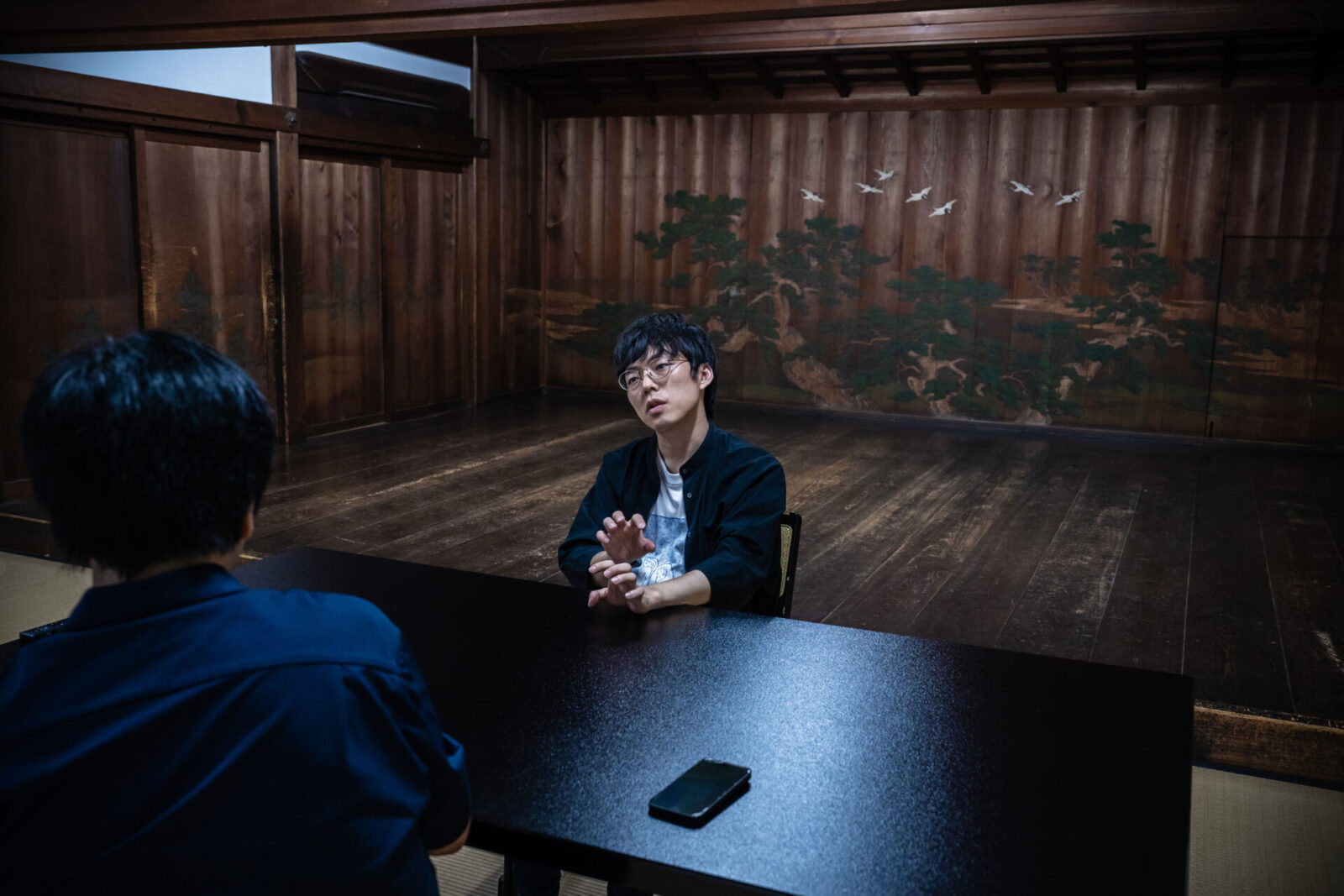
Uno: However, in this case the changes were intentional. Habits are finely tuned to maintain homeostasis in our lives, so I think that accidental failures in that tuning are the key to making fundamental changes in humans.
Kick start fetishes and relativize motivation
Uno: I am not a big fan of sightseeing trips because I often find myself judging whether the place I visited exceeded my expectations and gave me the stimulation I sought to gain.
Traveling is a special occasion that takes you away from your everyday life. Regardless of what kind of stimulation we get at such special occasions, I do not think they really instigate change in humans. Rather, I believe it is the small changes in everyday life and everyday places that bring lasting change. For example, let’s say you walk into a store, find a plate that you really like and you buy it. This may change the way you eat your usual breakfast. Such trivial changes we make to our time and spaces are what is important.
Tanigawa: I previously participated in a tourism related conference and had a certain idea at the time. I think that visiting the same tourist site multiple times gives you the chance to encounter something unexpected.
Usually travel with the purpose of only receiving what one desires or travel that reaffirms a predetermined image is criticized, but I think it is possible to change that through repetition. Whether it is going to a restaurant to eat or visiting a tourist site, if you only go once it easily becomes an experience of simply consuming information that satisfies your expectations.
However, if you revisit the place repeatedly you are sure to encounter unexpected “accidents” and hopefully that will open up the possibilities and opportunities in front of you. Trying something repeatedly allows you to discover a method of consumption that is not just information that you copied from someone else. The topic of fanfiction that we mentioned early is another example of how re-telling a story is one way to create repetition and discovery.
Uno: I see. Repetition gives us the opportunity to nurture our desires, or in other words they trigger “accidents.”
Tanigawa: Another thing that comes to mind relating to this topic is something I am writing about in my new book about impulses. I explore the idea of impulses that are so strong that it surprasses our own will and totally consumes us, or in other words, irrational motivation. As author Daniel Pink writes in his book, “Drive: The Surprising Truth About What Motivates Us” (published in Japan by Kodansha, 2010), motivation in the business world especially, is only driven by the goal of increasing productivity. However, motivation that comes from impulse contains an irrationality that we don’t talk about. If we are able to evoke irrational motivation, I think it will lead to rediscovering our ability to be tempted by what is in front of us.
Uno: I think our only way to fight rational motivation is through fetishes (having an extreme degree of interest or love toward a particular object or activity). I think that motivation is usually based on rationality, but fetishes are a nasty combination of animalistic pleasure and complexes, as well as obsession and repression.
I think it is important to kick start such irrational and unproductive fetishes in order to relativize motivation. I believe the trigger for that will be “accidents” that happen that cause failure in our everyday necessities such as food, clothing and shelter. When we fail to optimize our basic needs, we will come to see the objects of our desires that we were not aware of before.
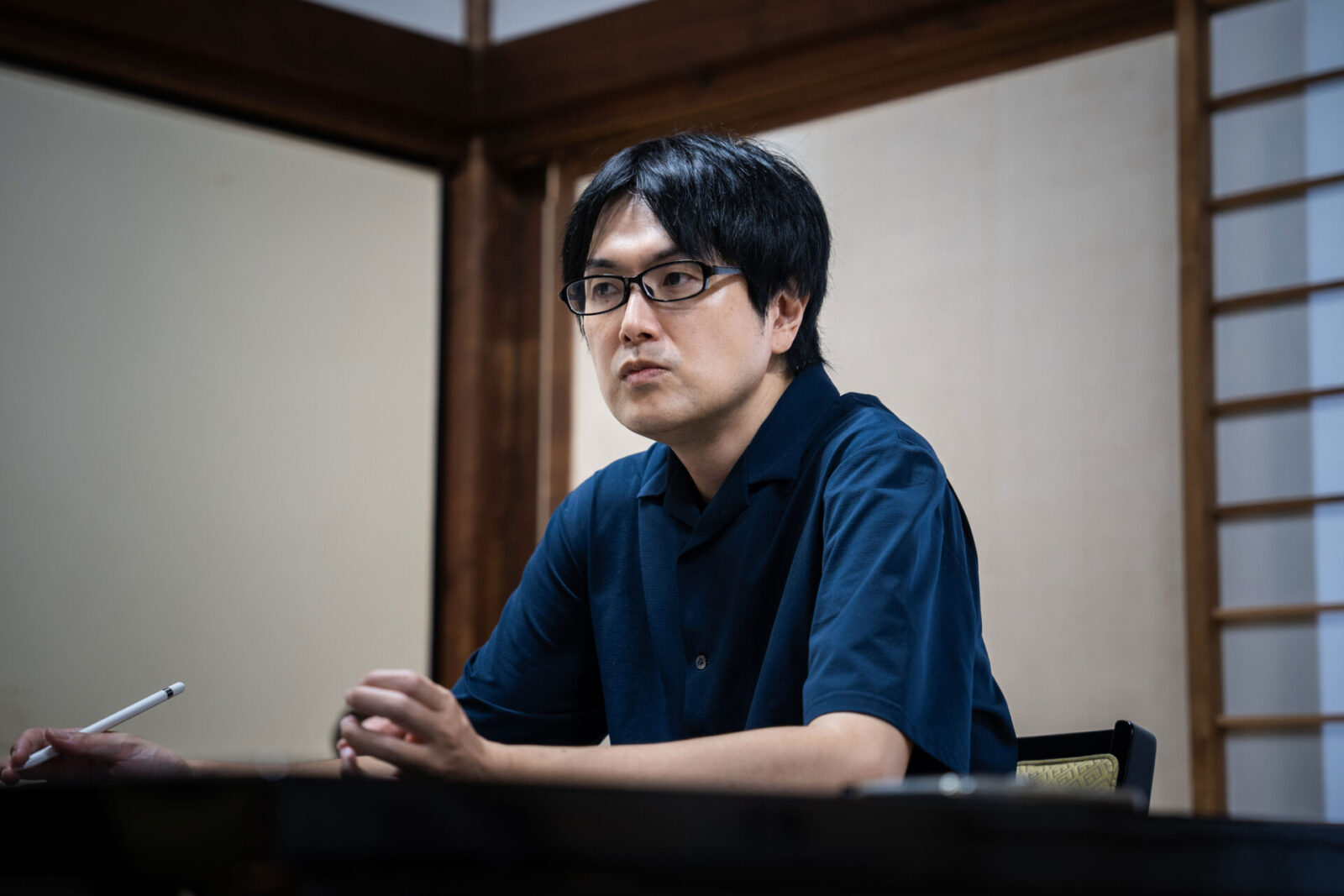
Tanigawa: Behind failures are experimentation. I think that in order to discover your preferred shikohin and irrational motivations you must spend time alone and experience solitude. I wrote a book titled “Tsurumi Shunsuke’s Words and Logic: Imagination, Popular Culture and Pragmatism” (Jinbunshoin, 2022) and in it I introduce an episode that triggered Tsurumi into contemplating “self-learning”.
One day Tsurumi was talking about the definition of self learning with his friends. Among them was a man who worked at a factory in Kyoto and that man shared his personal definition. He said, “After work I stop by a cafe on the way home. I do not read books or anything, but this act of going to the cafe alone and drinking a cup of coffee is my method of self-learning.”
What this episode tells us is that self reflection in solitude is the ultimate learning experience. I also talk about this in my book “Philosophy in the Age of Smartphones” but I believe that we need to be true to our own desires and pleasure and not conform to the pace and molds created by others. It is okay that this comes from irrational impulse. Shikohin such as alcohol and coffee have a cultural depth and provide a lot of options so perhaps they are the perfect tool to use as a first step in discovering your own desires, alone.
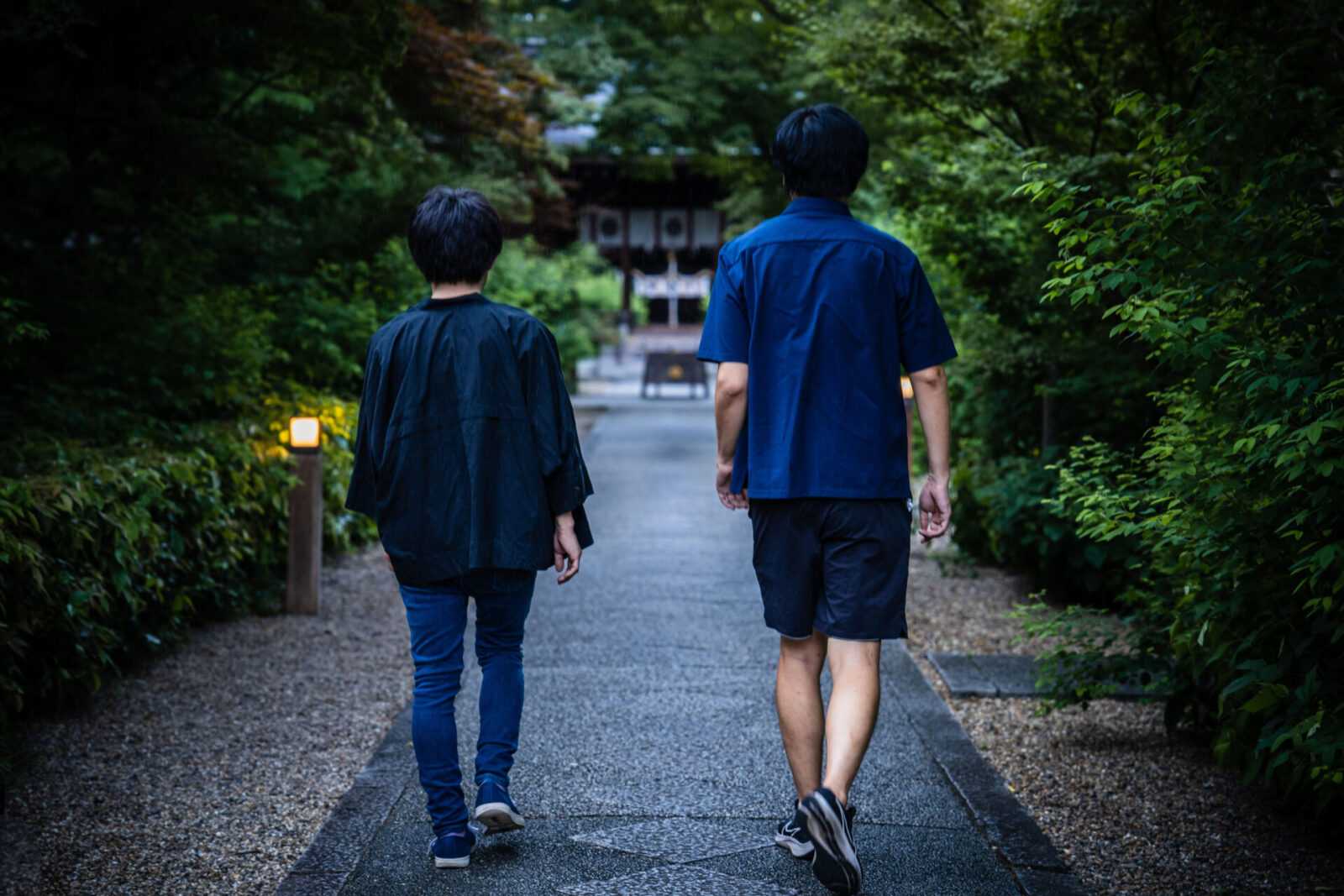
Translation: Sophia Swanson
